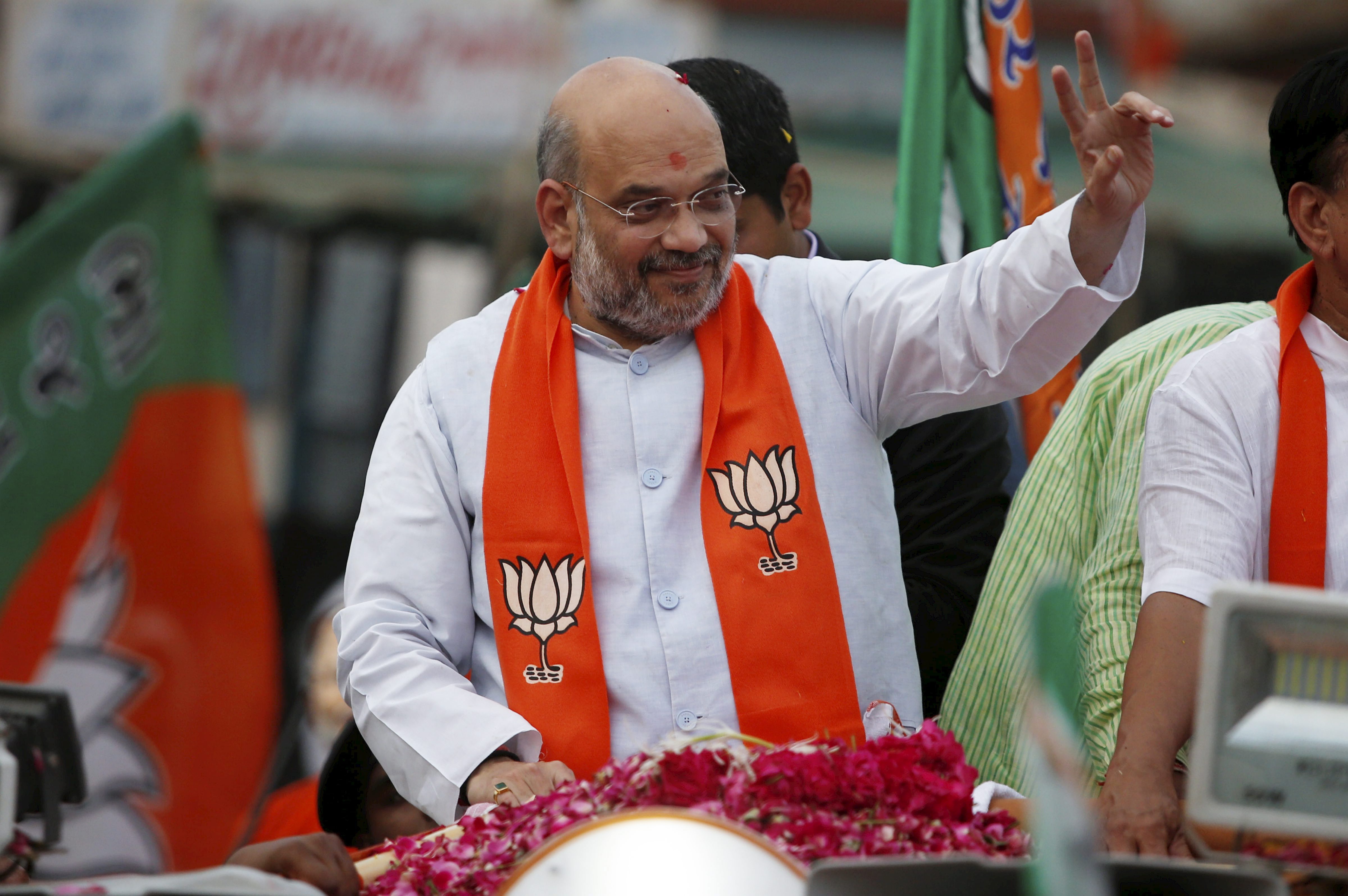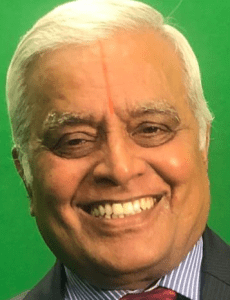
The return of Amit Shah and rise of a new power centre in Modi 2.0

Prime Minister Narendra Modi in his second term has not only appointed a powerful new Home Minister, but also a probable successor to his ‘throne’ – Amit Anilchandra Shah.
When Amit Shah took over as Home Minister on May 30, it was clear to everyone that he is being anointed formally as No.2 in the government after successfully helming the BJP as its head.
But what has surprised everyone is the sweeping powers he would now enjoy leading to conclusions that after the Prime Minister’s Office, the Home Minister would be the holding the most powerful office in the nation.
Hold over NSA, NTRO, RAW
The Prime Minister’s Office has either shed or shared some of its own powers with the Home Minister’s office making it the second most important place within the corridors of power.
Ajit Doval, the National Security Advisor (NSA), S C Jha, the chief of National Technical and Research Organisation (NTRO) and A K Dasmana, the chief of Research and Analysis Wing (RAW) will be literally reporting to the home minister.
So far these wings have only been reporting to the Prime Minister’s Office. With the latest power shift they would also be regularly briefing the Home Minister, thus bestowing immense powers on his office.
Doval, regarded the most powerful bureaucrat in the government is the senior officer on the National Security Council (NSC) and Chief Advisor to the Prime Minister on national and international security policy.
On instructions from the Prime Minister on Sunday last, Ajit Doval not only called on Shah but also since has been attending various internal meetings of the Home Ministry. His tenure was extended hurriedly for five more years on June 2 and he was bestowed with the Cabinet rank.

Doval, specifically attended the meeting on delimitation exercise for Jammu and Kashmir chaired by Shah. The obvious conclusion or inference one could draw is that the government is actively redrawing its policy on J&K and Shah is seeking inputs from the NSA.
The NTRO reports to the NSA and, therefore, Jha has only been reporting to the PMO. Following the appointment of Shah, the NTRO will submit its findings and report to the Home Minister’s office as well. NTRO shot to fame after the Balakot strike as the intelligence wing was able to aid the Air Force operations with pin-point accuracy.
RAW Chief A K Dhasmana too is holding meetings with Shah and regularly briefing him about the situation on the border states, with emphasis on international operations. RAW, is basically India’s equivalent of CIA and looks after its external intelligence operations.
Privy to intelligence operations
Armed with this new reporting matrix which offers immense information and power, Shah has further tweaked the operational capabilities of his ministry. The intelligence agencies that used to brief the Prime Minister and NSA twice a day have now begun to brief Shah as well and now for three times a day.
Earlier when Rajnath Singh was the Home Minister, he had access to some of these briefings and was kept in the loop but he never had any real decision-making powers
Earlier when Rajnath Singh was the Home Minister, he had access to some of these briefings and was kept in the loop but he never had any real decision-making powers.
Besides the CBI Director, Rishi Kumar Shukla, the Director of Enforcement Directorate Sanjay Kumar Mishra and Director of Revenue Intelligence D P Dash are the daily callers on Shah. In effect, the new home minister has comprehensive access to internal and external intelligence operations and all the enforcement agencies. Shah would be wielding enormous power by presiding over all of these institutions. Since Shah has penchant for grass roots connect he is likely to visit all the border states before and after the forthcoming Parliament session.
Rejig of PMO
There also have been massive restructuring within the Prime Minister’s Office. The internal dynamics is likely to undergo a major change as there has been no word on the extension to Nripendra Mishra, the Principal Secretary to the Prime Minister. It is likely that he may not continue. Tongues have begun to wag in the PMO circles as so far he has not been granted a one-to-one appointment with Modi.
In Modi 1.0 Ajit Doval was the most powerful bureaucrat with direct access to the Prime Minister. In Modi 2.0, with the appointment of former foreign secretary S Jaishankar as the new external affairs minister, Doval’s power equations are likely to suffer
Ajit Doval’s own standing has suffered a slide. In Modi 1.0 he was the most powerful bureaucrat with direct access to the Prime Minister. In Modi 2.0, with the appointment of former foreign secretary S Jaishankar as the new Cabinet minister in place of Sushma Swaraj, Doval’s power equations are likely to suffer. This is because Jaishankar can now directly manage the affairs of his department and can have the ears of the Prime Minister too.
It is believed that the Prime Minister is keen to promote Additional Principal Secretary P K Mishra in place of Nripendra Mishra. The Gujarat cadre officer, who hails from Odisha, is a Modi loyalist and is affectionately addressed as PK.
Top BJP leaders say that Nripendra Mishra lost the confidence of the Prime Minister as he had pushed a few officers who proved to be an ‘embarrassment’ for the government. For instance Alok Verma, the former CBI Director and Ashok Lavasa, the Election Commissioner.
The government had to reinstate Alok Verma as the CBI chief following a Supreme Court order. He was sacked after a spat between him and his No.2. The two had openly accused each other of corruption, causing huge embarrassment to the government. Lavasa as an Election Commissioner stood his ground and had registered his dissenting note on a few decisions taken by the chief election commissioner and another election commissioner. Moreover Nripendra Mishra’s son Saket Mishra was involved in politics and had sought a BJP ticket to contest 2019 Lok Sabha elections from Uttar Pradesh.
Since Shah as Home Minister is a member of the Appointments Committee of the Cabinet or ACC with Prime Minister Modi as its chairman, he will have a key role in controlling the 8,000 strong IAS, IPS and other allied cadres of officials.
Thus far, 22 governors have called on Shah. Most of them have completed a five-year term. Some of them may be seeking extension or transfers. By the middle of July, with the approval of the Prime Minister Modi, Shah plans to have new governors in all the states.


